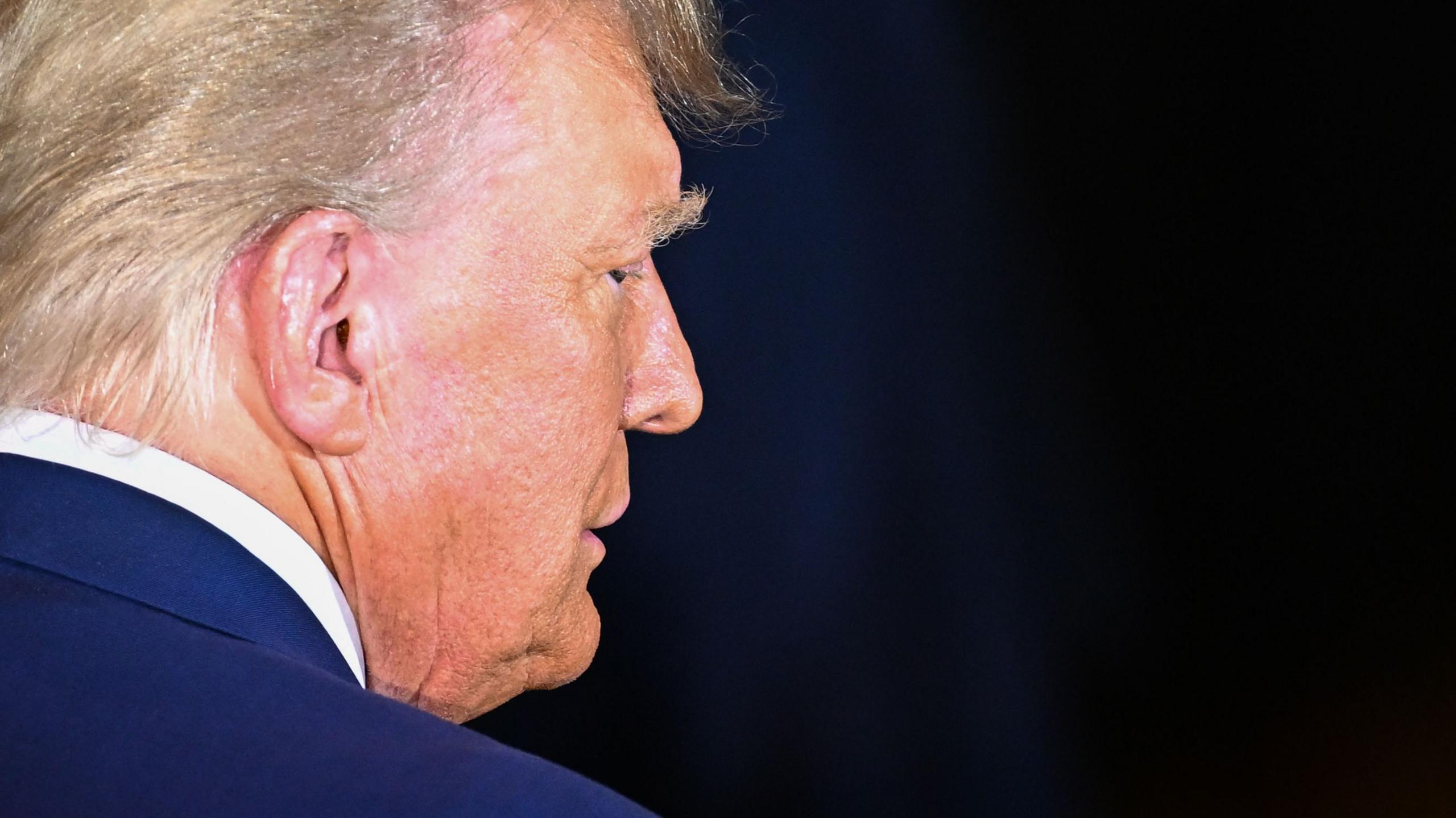Five takeaways from Trump’s first week as president-elect

- Published
Donald Trump has moved speedily since winning the US presidential election to set the foundations of his second term in the White House.
He has made his early priorities clear - and stunned some in Washington and around the world while doing so.
Here’s what we’ve learned from his rollercoaster first week as president-elect.
1) He’s building a loyal team to shake up government
Trump started building his top team almost immediately, nominating cabinet picks for Senate approval and appointing White House advisers and other senior aides.
But that doesn’t tell the full story.
His selections make clear that he plans a radical shake up of government, eschewing more conventional and experienced picks for those who are loyal to him and share his vision for a second term that will upend the status quo in Washington.
His choice for defence secretary, for example, has called for a purge of military chiefs enacting “woke” policies. His nominee for health secretary, Robert F Kennedy Jr, has said he wants to “clear out corruption” at America’s health agencies and cut “entire departments” at the Food and Drug Administration (FDA).
And that’s not to mention a promised “Department of Government Efficiency“ helmed by advisers Elon Musk and Vivek Ramaswamy, which Trump says will focus on slashing regulations and historic cost-cutting.
The bigger picture is that Trump’s proposed team is almost universally loyal, and favour overhauling their respective government departments.
You can take a deeper look at who’s in the frame for his top team here.
2) He’ll have a friendly Congress on his side
Republicans have won control of the House as well as the Senate, giving the party a crucial (albeit narrow) majority in both chambers for at least the next two years, when there will be the usual midterm elections.
This is a major boost to Trump’s agenda. It means he will be more easily able to pass legislation and gives his policy priorities a friendly path to becoming law.
What a Republican trifecta means for Trump's second term
The Democratic Party will, naturally, be less able to block and resist his agenda too. And Trump should for now be able to avoid the kind of congressional investigations he faced in the second half of his first term.
Ultimately, Republican control of Congress could prove key in pushing through his big pledges such as mass deportations, sweeping tariffs on foreign imports and the rolling back of environmental protections.
3) But Senate Republicans won’t always roll over
Trump’s influence was put to the test earlier this week when Republicans in the Senate picked their new leader.
While he did not weigh-in on the race directly, there had been a concerted effort from the president-elect’s most vocal allies as well as favourable ‘Maga’ media outlets to get hard-line Trump loyalist Rick Scott elected.
But he was defeated in the first round and Republicans opted for a more orthodox pick in John Thune, who has had a more rocky relationship with Trump.
It’s worth noting that this was a secret ballot, so it was far from a public repudiation of Trumpworld.
There will be sterner tests of Trump’s power on Capitol Hill to come, notably when confirmation hearings are held for his more divisive cabinet picks.
Some Senate Republicans, for example, have already signalled their opposition to Trump's shock choice of Matt Gaetz to lead the justice department.
Key moments from loyal Trump supporter Matt Gaetz
4) Trump's criminal conviction could soon be wiped
While much of the focus was on the president-elect’s nominations and appointments, we also had a reminder that his legal troubles have been upended by his victory.
In New York specifically, his criminal fraud conviction in the hush-money case lives on for at least a few more days.
But it could soon be consigned to history. Earlier this week a judge delayed his decision as to whether Trump’s conviction should be thrown out because of a Supreme Court ruling in the summer that expanded presidential immunity.
That decision is now expected to come next week. And while it’s not clear whether the conviction will be tossed out, Trump’s scheduled sentencing on 26 November is likely to be delayed regardless.
Here’s a reminder of how Trump’s election win impacts his cases.
What are recess appointments and how will Trump administration picks be vetted?
- Published15 November 2024
Trump's pick of Huckabee and Witkoff a clue to Middle East policy
- Published14 November 2024
Trump picking Gaetz to head justice sends shockwaves - and a strong message
- Published14 November 2024
Who has joined Trump's team so far?
- Published25 February
5) He has China firmly in his sights
It’s no secret that Trump views the world differently to Biden, and could drastically shift US foreign policy over the next few years.
One clear theme that's emerged in recent days is the prominence of China hawks in his proposed team - those who believe Beijing poses a serious threat to US economic and military dominance and want to challenge this more forcefully.
And they are present from the top down.
His nomination for secretary of state - America’s most senior diplomat - Marco Rubio, has described China as the “most advanced adversary America has ever faced”.
Mike Waltz, his national security adviser, has said the US is in a “cold war” with China. Other nominees such as his proposed ambassador to the UN, Elise Stefanik, have directly accused China of election interference.
During Trump’s first administration, relations with Beijing were tense, and they barely warmed under Biden. With tariffs, export controls and pointed rhetoric, the president-elect appears ready to take an even tougher stance this time around.